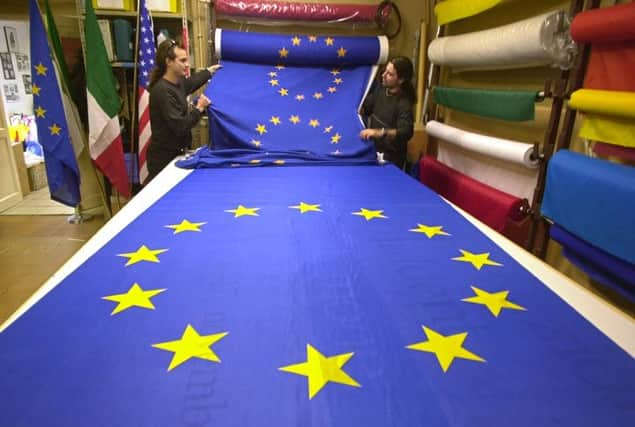David Maddox: Who cares about European Parliament?


Between 22 and 24 May the citizens of the European Union will be given the opportunity to elect 766 members of the European Parliament and if past turnouts are anything to go by, only about a third of UK voters will bother with deciding who their 73 representatives will be. The 35.2 per cent turnout in the UK for the same election in 2009 was one of the worst in Europe, and the average across all the member states was less than 50 per cent.
Even before the campaign has really got going it is clear that the main parties intend to do as little as possible for the European Parliament elections.
Advertisement
Hide AdAdvertisement
Hide AdThere were reports that Labour’s election guru, shadow foreign secretary Douglas Alexander, had advised Ed Miliband to save Labour’s limited amount of money by doing very little in this year’s election and using resources instead for a big push in next year’s general election, advice which apparently infuriated deputy leader Harriet Harman. It was reported that Mr Alexander suggested Labour will not do well in the election so why waste money when Westminster is a big prize.
It is likely that the Tories will follow suit and the Lib Dems have so few funds at the moment they cannot be expected to mount much of a campaign.
What this means is that the election will again become an opportunity for fringe parties to get a foothold in British politics. It is very possible that Ukip will even go close to topping the poll because anti-EU voters tend to be more motivated than others. Ukip’s leader Nigel Farage hopes that this will give his party a platform to win seats at Westminster.
In 2009 the BNP managed to get two seats and it is possible with a low turnout they could sneak in again. The Greens made their original election breakthrough in the European Parliament elections and still have an MEP.
But the big three parties will be hoping for a low turnout on the basis that it masks a poor result and makes it easy to discredit an election. Also, while the European Parliament commands a budget of around £1.5 billion a year between its two parliaments in Strasbourg and Brussels, its activities rarely impinge on the consciousness of voters in this country. This is not to say that it does not have significant powers. It can and in the past has sacked the European Commission and it can veto the EU budget. It can also legislate on areas such as banning ten-packs of cigarettes. The trouble is most people really don’t seem to care.
This means that success in the European Parliament elections for smaller parties has yet to translate into a firm foothold in mainstream British politics. It is probable that 2013 will be no different.